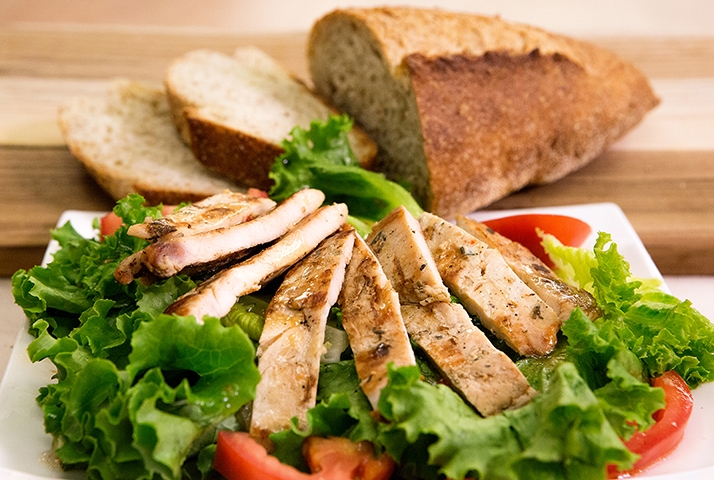Introduction
Understanding The Relationship Between Chicken And Blood Sugar Levels
When it comes to maintaining stable blood sugar levels, certain dietary choices can play a significant role. Chicken, being a low-carbohydrate and high-protein food, is often recommended for individuals with diabetes or those looking to manage their blood sugar levels effectively. Understanding the relationship between chicken consumption and its impact on blood glucose control is crucial for individuals with diabetes or those at risk of developing the condition.
Importance Of Maintaining Stable Blood Sugar Levels
Managing blood sugar levels is essential for individuals with diabetes to prevent complications and maintain their overall health. High blood glucose levels can lead to various problems, including cardiovascular disease, nerve damage, kidney disease, and vision impairment. Therefore, finding dietary options that have minimal effect on blood sugar levels is crucial for individuals with diabetes.
One such food option is chicken, which can be incorporated into a low-glycemic meal plan. Since chicken does not contain carbohydrates, it has little effect on blood sugar levels. This makes it an ideal source of protein for individuals looking to control their blood glucose levels.
Chicken is a complete protein, meaning it contains all essential amino acids required by our bodies. These amino acids help in various bodily functions, including cell growth, repair, and maintenance. Consuming chicken as part of a balanced meal can help individuals with diabetes meet their protein requirements without causing drastic fluctuations in their blood sugar levels.
Furthermore, chicken is also a versatile meat that can be prepared in numerous ways, providing individuals with a wide range of options to incorporate it into their diet. Whether it’s grilled, baked, or stir-fried, chicken can be enjoyed in various delicious and healthy recipes.
In conclusion, chicken is an excellent choice for individuals looking to maintain stable blood sugar levels. Its low-carbohydrate content makes it a suitable protein source for those with diabetes or those aiming to manage their blood glucose levels effectively. By incorporating chicken into a balanced meal plan, individuals can enjoy a healthy and nutritious diet while minimizing the risk of adverse effects on blood sugar control.

Chicken And Blood Sugar
Does Chicken Raise Blood Sugar Levels?
There is a common myth that consuming chicken can lead to elevated blood sugar levels in people with diabetes. However, this is not true. Chicken is a low-carbohydrate and high-protein food, which means it has little effect on blood sugar levels. Unlike carbohydrates, which are quickly broken down into glucose and can cause spikes in blood sugar, chicken does not contain carbohydrates.
Impact Of Chicken On Blood Sugar Levels
Because chicken does not contain carbohydrates, it is considered a low-glycemic food. This means it has a minimal impact on blood sugar levels. For individuals with diabetes or those looking to manage their blood glucose levels effectively, incorporating chicken into their meal plan can be a beneficial option.
Incorporating chicken into a balanced meal can help individuals with diabetes meet their protein requirements without causing drastic fluctuations in their blood sugar levels. Chicken is a complete protein, meaning it contains all essential amino acids required by our bodies. These amino acids play a vital role in various bodily functions, including cell growth, repair, and maintenance.
Furthermore, chicken is a versatile meat that can be prepared in numerous ways, providing individuals with a wide range of options to incorporate it into their diet. Whether it’s grilled, baked, or stir-fried, chicken can be enjoyed in various delicious and healthy recipes.
In conclusion, chicken is an excellent choice for individuals looking to maintain stable blood sugar levels. Its low-carbohydrate content makes it a suitable protein source for those with diabetes or those aiming to manage their blood glucose levels effectively.
Nutritional Benefits Of Chicken
Protein Content In Chicken
Chicken is an excellent source of protein. Protein is essential for maintaining and repairing tissues, supporting the immune system, and providing energy. Consuming an adequate amount of protein can also help manage blood sugar levels, as protein takes longer to digest and can help control hunger and cravings.
Essential Vitamins And Minerals Found In Chicken
In addition to its high protein content, chicken also contains important vitamins and minerals that are beneficial for overall health and well-being. Some of the key nutrients found in chicken include:
- Selenium: Chicken is a good source of selenium, a mineral that acts as an antioxidant and plays a role in maintaining a healthy immune system.
- Vitamin B: Chicken is rich in various B vitamins, including niacin, vitamin B6, and vitamin B12. These vitamins are involved in energy metabolism, nerve function, and red blood cell production.
By incorporating chicken into their diet, individuals can not only meet their protein needs but also benefit from these essential nutrients that support overall health.
Chicken And Blood Sugar
Does Chicken Raise Blood Sugar Levels?
Contrary to common belief, consuming chicken does not lead to elevated blood sugar levels in people with diabetes. Chicken is a low-carbohydrate and high-protein food, meaning it has little effect on blood sugar. Unlike carbohydrates, which are quickly broken down into glucose and can cause spikes in blood sugar, chicken does not contain carbohydrates.
Impact Of Chicken On Blood Sugar Levels
Because chicken does not contain carbohydrates, it is considered a low-glycemic food. This means it has a minimal impact on blood sugar levels. Incorporating chicken into a balanced meal can help individuals with diabetes meet their protein requirements without causing drastic fluctuations in their blood sugar levels.
Furthermore, chicken is a versatile meat that can be prepared in numerous ways, providing individuals with a wide range of options to incorporate it into their diet. Whether it’s grilled, baked, or stir-fried, chicken can be enjoyed in various delicious and healthy recipes.
In summary, chicken is a nutritious protein source that does not significantly affect blood sugar levels. Its high protein content and essential nutrients make it a beneficial choice for individuals looking to maintain stable blood sugar levels or manage diabetes. Incorporating chicken into a balanced diet can contribute to overall health and well-being.
Chicken In A Diabetic Diet
Chicken As A Low-glycemic Food Option
Chicken is an excellent choice for individuals with diabetes as it is a low-glycemic food. Unlike carbohydrates that quickly raise blood sugar levels, chicken has minimal impact on blood glucose. This is because it is low in carbohydrates and high in protein content.
Incorporating Chicken Into A Balanced Diabetic Meal Plan
Including chicken in a balanced diabetic meal plan offers several benefits. Here are some ways to incorporate chicken into your diet:
| Preparation Method | Advantages |
|---|---|
| Grilled | Grilling chicken helps retain its natural flavors without adding excessive fats, sugars, or salts. This method keeps the chicken lean and is a healthy option for managing blood sugar levels. |
| Baked | Baking chicken is another healthy way to prepare it. By avoiding deep-frying or using excess oil, baked chicken retains its nutritional value and can be enjoyed as part of a balanced meal. |
| Stir-fried | Stir-frying chicken with a variety of vegetables can create a delicious and nutritious meal. Be mindful of the amount of oil and sauces used to keep the dish healthy. |
By incorporating chicken into a balanced meal, individuals can meet their protein requirements without causing drastic fluctuations in blood sugar levels. The high protein content in chicken helps control hunger and manage cravings, which can support overall blood sugar management.
In conclusion, chicken is a low-glycemic food option that can be included in a diabetic diet. Its minimal impact on blood sugar levels, along with its high protein content and essential nutrients, make it a healthy choice for individuals looking to manage their diabetes. With various cooking methods to choose from, chicken can be enjoyed in a variety of delicious and nutritious recipes.

Cooking Methods For Chicken
Grilling Chicken And Its Effect On Blood Sugar Levels
Grilling chicken is a popular method of cooking that can help individuals with diabetes maintain stable blood sugar levels. This cooking method involves cooking the chicken over an open flame or on a grill plate, without the need for excessive fats, sugars, or salts. By grilling chicken, it retains its natural flavors and does not add unnecessary ingredients that can affect blood sugar levels. This makes grilled chicken a healthy option for managing diabetes.
Healthy Ways To Prepare Chicken To Maintain Blood Sugar Stability
In addition to grilling, there are other healthy ways to prepare chicken that can help individuals with diabetes maintain stable blood sugar levels. Some of these methods include baking and stir-frying.
Baking chicken involves cooking it in the oven without deep-frying or using excessive amounts of oil. This method helps retain the nutritional value of the chicken and can be enjoyed as part of a balanced meal.
Stir-frying chicken with a variety of vegetables is another healthy way to prepare it. However, it’s important to be mindful of the amount of oil and sauces used in the stir-fry to keep the dish healthy and avoid adding unnecessary calories and sugars.
By incorporating these cooking methods into a diabetic meal plan, individuals can enjoy the benefits of chicken while managing their blood sugar levels effectively. These methods help retain the nutritional value of the chicken and ensure that it does not cause drastic fluctuations in blood sugar levels.
In conclusion, chicken is a versatile protein source that can be included in a diabetic diet. Its minimal impact on blood sugar levels, along with its high protein content and essential nutrients, make it a healthy choice for individuals with diabetes. By using cooking methods such as grilling, baking, and stir-frying, individuals can enjoy chicken while maintaining stable blood sugar levels and overall well-being.
Chicken Recipes For Diabetics
Low-carb Chicken Recipes For Blood Sugar Control
Cooking chicken in ways that minimize carbohydrates can help individuals with diabetes maintain stable blood sugar levels. Here are some low-carb chicken recipes that are suitable for a diabetic-friendly diet:
- Grilled Lemon Herb Chicken: Marinate chicken breasts in a mixture of lemon juice, olive oil, garlic, and herbs. Grill the chicken until cooked through, and serve it with a side of roasted vegetables for a nutritious, low-carb meal.
- Baked Parmesan Crusted Chicken: Dip chicken breasts in beaten egg, then coat them with a mixture of grated Parmesan cheese, almond flour, and herbs. Bake the chicken in the oven until golden and crispy, and serve it with a side salad or steamed vegetables.
- Lemon Garlic Chicken Stir-Fry: Sauté chicken slices with garlic, ginger, and low-sodium soy sauce in a non-stick pan. Add a squeeze of lemon juice and a variety of colorful vegetables for a flavorful stir-fry that is low in carbs.
Delicious And Nutritious Chicken Dishes For A Diabetic-friendly Diet
In addition to low-carb options, there are plenty of delicious and nutritious chicken dishes that can be enjoyed as part of a diabetic-friendly diet:
- Lemon Rosemary Roasted Chicken: Rub chicken pieces with a mixture of lemon zest, rosemary, garlic, and olive oil. Roast the chicken in the oven until golden and juicy, and serve it with a side of roasted sweet potatoes and steamed green beans.
- Spicy Grilled Chicken Skewers: Marinate chicken chunks in a mixture of Greek yogurt, paprika, cayenne pepper, and lime juice. Thread the chicken onto skewers and grill until charred and cooked through. Serve the skewers with a side of cucumber and tomato salad for a refreshing and spicy meal.
- Chicken and Vegetable Curry: Cook chicken pieces with a blend of onions, garlic, ginger, and curry powder. Add a variety of vegetables such as bell peppers, cauliflower, and spinach, and simmer until tender. Serve the curry with brown rice or cauliflower rice for a satisfying and flavorful meal.
By incorporating these low-carb and delicious chicken recipes into a diabetic meal plan, individuals can enjoy the benefits of chicken while maintaining stable blood sugar levels and overall well-being. Remember to consult with a healthcare professional or registered dietitian for personalized advice and to ensure these recipes align with individual dietary needs.
Chicken And Diabetes Management
Role Of Chicken In Managing Diabetes Symptoms
Chicken is a nutritious and protein-rich food that can play a beneficial role in managing diabetes. The low-calorie content of chicken makes it an ideal choice for individuals with diabetes who want to maintain a moderate weight. The high protein content helps to keep individuals feeling full for longer, which can aid in blood sugar control and reduce the risk of overeating.
Additionally, chicken is low in saturated fat, which is important for people with diabetes. Including lean proteins like chicken in the diet can help to balance blood sugar levels and prevent spikes in glucose levels.
Chicken’s Impact On Weight Management For Diabetics
Maintaining a healthy weight is crucial for individuals with diabetes. Chicken can be a helpful food in managing weight due to its high protein content and low calorie count. Protein-rich foods like chicken can increase satiety and help to control appetite, preventing excessive food intake and promoting weight management.
Moreover, chicken is a versatile ingredient that can be prepared in various ways, allowing for delicious and nutritious meals while still being mindful of calorie intake. By choosing healthier cooking methods such as grilling, baking, or stir-frying, individuals with diabetes can enjoy tasty chicken dishes without compromising their weight management goals.
It’s important to note that while chicken can be a beneficial part of a diabetic-friendly diet, it should be consumed as part of a well-rounded meal plan that includes a variety of other nutrient-rich foods. Consulting with a healthcare professional or registered dietitian is always recommended to ensure a comprehensive and personalized approach to managing diabetes through diet.

Chicken And Diabetes Management
Role Of Chicken In Managing Diabetes Symptoms
Chicken is a nutritious and protein-rich food that can play a beneficial role in managing diabetes. The low-calorie content of chicken makes it an ideal choice for individuals with diabetes who want to maintain a moderate weight. The high protein content helps to keep individuals feeling full for longer, which can aid in blood sugar control and reduce the risk of overeating. Additionally, chicken is low in saturated fat, which is important for people with diabetes. Including lean proteins like chicken in the diet can help to balance blood sugar levels and prevent spikes in glucose levels.
Chicken’s Impact On Weight Management For Diabetics
Maintaining a healthy weight is crucial for individuals with diabetes. Chicken can be a helpful food in managing weight due to its high protein content and low calorie count. Protein-rich foods like chicken can increase satiety and help to control appetite, preventing excessive food intake and promoting weight management. Moreover, chicken is a versatile ingredient that can be prepared in various ways, allowing for delicious and nutritious meals while still being mindful of calorie intake. By choosing healthier cooking methods such as grilling, baking, or stir-frying, individuals with diabetes can enjoy tasty chicken dishes without compromising their weight management goals. It’s important to note that while chicken can be a beneficial part of a diabetic-friendly diet, it should be consumed as part of a well-rounded meal plan that includes a variety of other nutrient-rich foods. Consulting with a healthcare professional or registered dietitian is always recommended to ensure a comprehensive and personalized approach to managing diabetes through diet.
Other Considerations
Portion Control And Serving Sizes For Chicken In A Diabetic Diet
When incorporating chicken into a diabetic diet, it’s important to practice portion control and be mindful of serving sizes. While chicken is a nutritious food, consuming excessive amounts can still contribute to calorie intake and potentially affect blood sugar levels. The American Diabetes Association recommends aiming for around 3-4 ounces of cooked, skinless chicken per meal.
Safety Precautions When Consuming Chicken For Diabetics
To ensure the safety and quality of chicken for individuals with diabetes, some precautions should be taken:
- Choose lean cuts of chicken, such as breast meat, and remove the skin before cooking to reduce saturated fat intake.
- Avoid deep-frying chicken, as this can increase the calorie and fat content.
- Thoroughly cook chicken to an internal temperature of 165°F (74°C) to kill any potential bacteria and prevent foodborne illnesses.
- Store raw chicken separately from other foods to prevent cross-contamination.
- Practice good hygiene, including washing hands and utensils thoroughly before and after handling raw chicken.
By following these precautions, individuals with diabetes can safely and effectively incorporate chicken into their diet to support diabetes management and maintain overall health.
Dietary Management Of Diabetes: The Role Of Chicken
Summary Of The Benefits Of Incorporating Chicken Into A Diabetic Diet
- Chicken is a nutritious and protein-rich food that can play a beneficial role in managing diabetes.
- The low-calorie content of chicken makes it an ideal choice for individuals with diabetes who want to maintain a moderate weight.
- The high protein content helps to keep individuals feeling full for longer, aiding in blood sugar control and reducing the risk of overeating.
- Chicken is low in saturated fat, which is important for people with diabetes.
- Including lean proteins like chicken in the diet can help to balance blood sugar levels and prevent spikes in glucose levels.
Final Thoughts On The Role Of Chicken In Managing Blood Sugar Levels
- Chicken, with its lean protein content, low carbohydrate profile, and essential nutrients, is an ideal protein source for individuals looking to manage their blood sugar levels effectively.
- Incorporating chicken into a diabetes diet can be a smart and delicious choice.
- It is important to note that chicken on its own does not raise blood sugar levels significantly, as carbohydrates, not protein, are the primary drivers of post-meal glucose fluctuations.
- Chicken’s nutrient density, low calorie count, and ability to promote satiety make it an excellent addition to a diabetic meal plan.
- However, it is essential to practice portion control and be mindful of serving sizes to avoid excessive calorie intake.
- By choosing lean cuts of chicken, removing the skin before cooking, and opting for healthier cooking methods, individuals with diabetes can enjoy tasty chicken dishes while still managing their weight.
- It is always recommended to consult with a healthcare professional or registered dietitian for a comprehensive and personalized approach to managing diabetes through diet.
Conclusion
Incorporating chicken into a diabetic diet can provide various benefits for individuals managing diabetes. Its nutrient-rich profile, low calorie count, and protein content make it an ideal protein source. Additionally, chicken can aid in weight management, satiety, and blood sugar control, making it a valuable addition to a well-rounded meal plan. By practicing portion control, choosing lean cuts, and following proper food safety precautions, individuals with diabetes can safely and effectively include chicken in their diet to support diabetes management and overall health.
Frequently Asked Questions about the Impact of Chicken on Blood Sugar Levels
Q: Does chicken raise blood sugar levels?
A: Chicken is generally considered a safe protein source for individuals with diabetes or those concerned about their blood sugar levels. It has minimal impact on blood sugar when consumed in moderation and prepared in a healthy manner.
Q: How does chicken affect blood sugar?
A: Chicken, especially skinless and lean cuts, has a low glycemic index (GI), which means it doesn’t cause a significant spike in blood sugar levels. It is also a good source of protein, which helps slow down the digestion and absorption of carbohydrates, further helping to regulate blood sugar.
Q: Can chicken be part of a diabetic diet?
A: Yes, chicken can be a valuable addition to a diabetic diet. It is a lean source of protein and can help stabilize blood sugar levels when combined with other low-glycemic foods, such as vegetables or whole grains.
Q: Are there any health benefits of including chicken in the diet?
A: Absolutely! Chicken is not only rich in protein but also a good source of essential vitamins and minerals, such as niacin, selenium, and vitamin B6. It can promote muscle growth, boost immune function, support brain health, and contribute to overall well-being.
Q: How should chicken be prepared to maintain its blood sugar-friendly properties?
A: It is best to prepare chicken by grilling, baking, or boiling rather than deep-frying or consuming it with high-sugar sauces or coatings. Avoid adding breadcrumbs or using sugary marinades to keep the meal healthier and maintain its blood sugar impact.
Q: How much chicken can be consumed in a diabetic diet?
A: The recommended portion size of chicken for a diabetic diet varies depending on individual needs and dietary goals. However, a serving size of 3-4 ounces (85-113 grams) of cooked, skinless chicken is generally considered appropriate for a balanced meal.
Q: Can people with diabetes consume chicken with the skin on?
A: It is generally recommended to remove the skin before consuming chicken if you have diabetes. Chicken skin is high in unhealthy saturated fat, which can have negative effects on heart health. Removing the skin helps reduce the overall fat content and improve the meal’s nutritional profile.
Q: Are there any potential concerns with consuming chicken for blood sugar levels?
A: While chicken is generally safe for blood sugar levels, it is important to be mindful of the cooking method and portion sizes. Avoid breaded, deep-fried, or processed chicken products, which may contain added sugars or unhealthy fats that can impact blood sugar levels. Also, ensure you don’t overeat and follow a well-balanced diet.
Q: Should I consult a healthcare professional before including chicken in my diet?
A: If you have specific dietary concerns or medical conditions, it is always a good idea to consult with a healthcare professional, such as a registered dietitian or a doctor, for personalized advice. They can guide you on the best dietary choices to suit your individual needs and help you manage your blood sugar levels effectively.

Welcome to the fascinating world of JoJo Asian Cafe! Our journey began with a passion for creating a unique culinary experience that celebrates the vibrant flavors of Asian cuisine while embracing the diverse dietary preferences of our guests. Nestled in the heart of the city, JoJo Asian Cafe is a haven for food enthusiasts seeking a delightful fusion of traditional and contemporary Asian flavors. Our commitment to culinary excellence and customer satisfaction has earned us a reputation for being a go-to destination for a memorable dining experience.